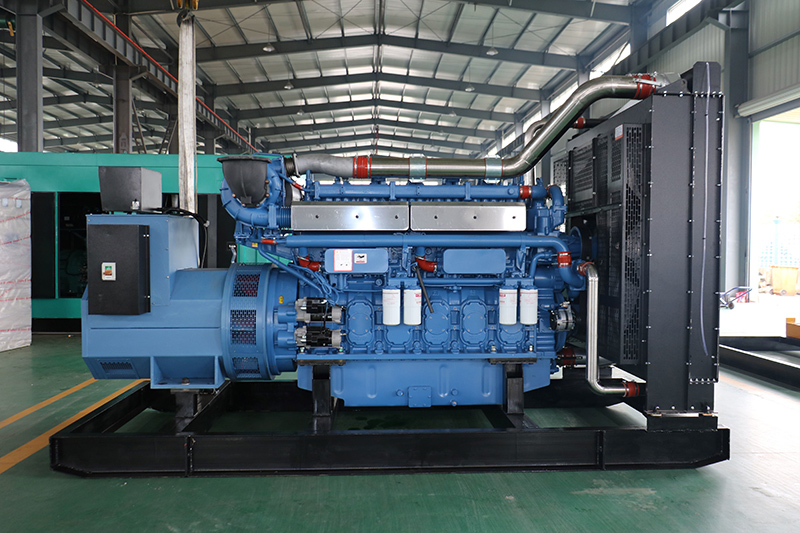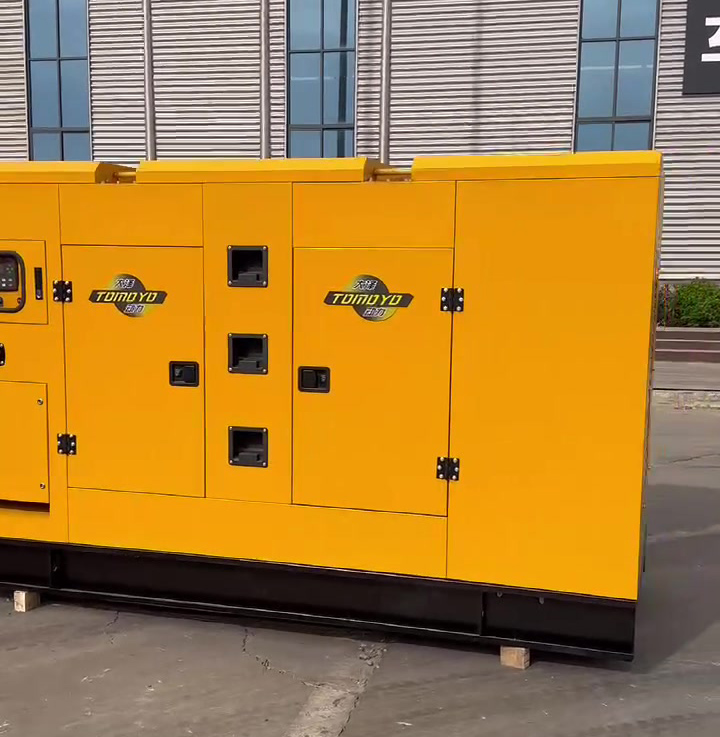Diesel Generators vs Natural Gas Generators: Which Will Lead as the Future Backup Power Source?
Release time:2025-08-16 Click:36
Uninterrupted power is critical for hospitals, data centers, manufacturing plants and many commercial operations. When the grid fails, backup generator sets (gensets) step in — and today the two primary contenders are diesel-fired gensets and natural gas gensets. Each technology has strengths and trade-offs. This article dives into technical, economic and environmental factors to help procurement teams decide which solution fits their specific needs — and what role each will play in the energy transition ahead. Diesel gensets are the long-standing default for backup power. They are prized for high power density, fast start-up, and broad fuel availability — especially in remote or infrastructure-limited regions. Some of the key attributes: Reliability: Diesel engines tolerate heavy loads and are robust under emergency start/stop cycles. Availability: Diesel fuel and service networks are widely distributed globally. Lower Capital Cost: Generally lower purchase price compared to equivalent-capacity gas systems. Maintenance Profile: Maintenance is well understood, spare parts are widely available, and local technicians are common in many markets. Downsides include higher pollutant emissions (PM, NOx, CO₂) and fuel price volatility tied to oil markets. Regulatory pressure in many regions is tightening emissions limits and encouraging cleaner alternatives. Natural gas gensets have risen in prominence where pipeline gas or reliable LNG supply is available. They usually emit less particulate matter and lower NOx and CO₂ per kWh than diesel — making them attractive in regions prioritizing air quality and emissions reductions. Lower Emissions: Cleaner combustion profile supports regulatory compliance and sustainability targets. Fuel Convenience: Continuous supply via pipeline removes the need for on-site fuel storage and frequent refueling logistics. Operational Economics: In gas-rich regions, operating costs can be significantly lower than diesel. Quiet Operation: Many gas engines run quieter and produce fewer odor issues than diesel. Constraints include dependence on gas infrastructure (pipelines or scheduled LNG deliveries), higher capital costs in some configurations, and the potential for methane leakage across the supply chain which impacts the true greenhouse gas footprint. Maintenance matters for both types: routine oil and filter changes, cooling system checks and load bank testing keep gensets ready. Differences to note: Diesel: Fuel polishing and storage tank maintenance are essential to prevent contamination. Aftertreatment systems (for low-emissions models) require additional servicing. Natural Gas: Gas engines often require specialized technicians; however, they avoid fuel storage issues and the frequent refueling logistics of diesel. Several trends will shape which technology grows faster: Regulation & Decarbonization: Stricter emissions standards favor gas and low-carbon alternatives, plus electrification and battery-backed solutions for short outages. Infrastructure Investment: Regions investing in gas pipelines and LNG logistics will see faster adoption of gas gensets. Hybridization: Diesel or gas gensets paired with batteries, solar or biogas increase resilience while reducing emissions and fuel use. Export Demand: Global buyers still seek robust diesel gensets for remote applications, while demand for gas gensets rises in urban and industrial markets with gas access. Assess fuel availability: Is pipeline gas or reliable LNG service available, or will you need on-site fuel storage? Define the use case: Emergency/short-duration vs long-duration backup or prime power? Evaluate total cost of ownership: Include CapEx, fuel costs, maintenance, emissions compliance and potential carbon pricing. Plan for service & spares: Confirm local service capability or supplier support for parts and training. Consider hybrid options: Could batteries or renewables reduce runtime and fuel consumption? There is no single “winner.” For many years to come, diesel gensets will remain the dominant choice for emergency standby in remote and developing markets where fuel logistics and rapid deployment matter most. In contrast, natural gas gensets are increasingly favored in urban, industrial and regulated markets where pipeline gas is available and emissions targets are strict. The near-future landscape will be characterized by coexistence, hybrid systems and incremental decarbonization. For exporters and procurement teams, the smartest strategy is to evaluate site-specific constraints, consider lifecycle costs, and work with manufacturers who can provide tailored solutions, spare parts and reliable after-sales support. If you represent a facility, distributor or project team and need a professional recommendation (diesel vs gas comparison, capacity sizing, or export-ready quotation), our factory specializes in customizable genset solutions for global markets. When contacting suppliers, have your required kW/kVA, runtime expectations, available fuel type, environmental rules, and installation constraints ready — this enables a fast, accurate proposal. Tip: Ask prospective manufacturers about certification (ISO/CE), available warranties, spare-parts lead times and remote/onsite commissioning support.Introduction
Diesel Generators: Proven, Powerful, and Ubiquitous
Natural Gas Generators: Cleaner and Efficient — When Supply Exists

Side-by-Side: Core Comparison
Factor Diesel Generator Natural Gas Generator Reliability Excellent under varied conditions; great for remote/emergency use. Very reliable with continuous pipeline supply; vulnerable if pipeline disrupted. Fuel Supply On-site storage (tanks) — flexible but requires management. Pipeline/LNG — low on-site logistics but infrastructure-dependent. Emissions Higher PM, NOx, and CO₂ (mitigation via aftertreatment possible). Lower PM & NOx; CO₂ lower per kWh but subject to methane leakage concerns. CapEx / OpEx Lower CapEx; fuel cost may be higher and volatile. Higher initial cost in some cases; lower OpEx in gas-rich markets. Best Use Cases Emergency/remote standby, rental fleets, sites lacking gas infrastructure. Facilities with reliable gas supply, long-duration backup, and sustainability goals. Operational & Maintenance Considerations
Market Trends & The Road Ahead
How to Choose: A Practical Buyer Checklist

Recommendation & Conclusion
Call to Action — For Buyers & Distributors
Hot products
+86 15244567972
Contacts:Jack
